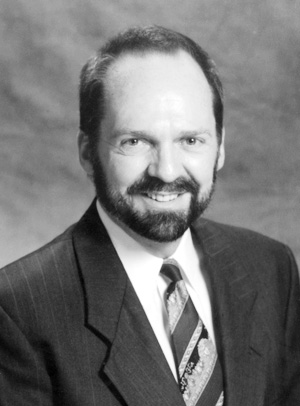Formerly the provost of Ithaca College from 1998 to 2001, Jim Malek is now serving as interim provost while Provost Peter Bardaglio is on sabbatical until May, when he will resign. Staff Writer Kathy Laluk spoke with Malek about his history at the college and his plans for the future.

Kathy Laluk: Why did you decide to come back to the college?
Jim Malek: Of all the places I’ve worked, I’ve always liked Ithaca the best … except the cold weather! But I love working with [President Williams] — she’s wonderful to work with. I like the faculty very much, I think the programs are wonderful. I just liked everything about the college. It was good timing for me. I had been looking to take some time off to do some reading and some writing, but I hadn’t really gotten started on that project. I was more in the thinking stages of it.
KL: What do you think students don’t know about the position of provost?
JM: Nobody knows what a provost is. Basically, I deal with everything on the academic side of things. The five school deans all report through the provost office, so we become sort of a chief coordinator of all academic programming. At [the college], things like the Division of Interdisciplinary and International Studies are run directly out of the provost’s office because they are not headquartered in any specific school.
KL: How is it different being an interim provost versus being a full-time provost?
JM: The main way it’s different, to use slang terms, is I don’t have a dog in that race. It’s a great luxury to be in an interim position, and I can simply do whatever I think is in the best long-term interest of the college without having to worry about fallout. This is the third interim position that I’ve held … and I’ve really enjoyed it. I can focus attention where I think it needs to be focused most … and not have to worry about whatever political effect it would have on me.
KL: What about the college has changed?
JM: The most noticeable thing is the building going on … the new School of Business building, the Gateway Building that’s in the works and the Capital Campaign. When I was here before, the thing I worried about most for the future was the resources for the college. [The college] really set some high ambitions for itself in terms of excellent academic programs, but the question was would we be able to fund these initiatives and achieve them all. [So far] we’ve made great progress.
KL: What do you hope to do for the college while you are here?
JM: My main goal is to move along some of the major projects that are already underway, especially trying to implement [them], including the freshman seminar, orientation, learning portfolio … all the parts of the core experience really … . There are also some issues with international programming, [specifically] which ones we should develop further, and which ones we should perhaps develop less.
KL: What’s your role in this transition period?
JM: [Williams] has a list of major initiatives she’d like me to address, ranging all the way from the core experience to the honors program, some of the international programs … and all the usual things that come up in the provost office like tenure and promotions. I’ve also been coordinating among the schools, meeting with the various deans and helping in whatever ways a provost can. It’s all fairly familiar territory for me.







